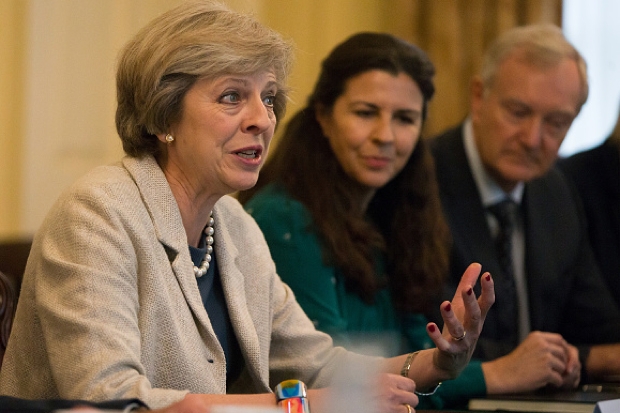When Theresa May was gearing up for a summer-long leadership campaign, she identified a worthy target: George Osborne’s addiction to easy money and the whole notion of quantitative easing. Rock-bottom interest rates and QE, she said, boost asset prices – and, in so doing, transfer wealth to the richest. When she became Prime Minister, the Bank of England decided to do another £70 billion of QE. We can guess that the effects will be the same as they were last time: more inflation and a surge of asset prices, making the richest even richer. As I say in my Daily Telegraph column today, QE is a magic wand of inequality.
The problem is that no one understands QE, so it never gets the scrutiny it deserves. The slightest tweak to any tax is weighed up to see whether it is progressive or regressive. But print off £350 billion – billion! – of freshly-minted money, use it to lend to the government and there’s almost no scrutiny. Even when the effect is nothing short of a massive transfer of wealth to the rich. QE means more inflation, which hits the poorest hardest. It lowers savings rates, and blows holes in pension funds. And the consequent asset boom helps those with the most assets: ie, the stonking rich.
You can, just about, argue that this is excusable if QE stops the financial markets falling off a cliff. And was that the case during the last crash? It’s still disputed. But no one argues, this time, that financial markets are in meltdown. On the contrary, they’re booming. Set aside the FTSE100 and FTSE250: gilt yields were already very low. Corporate borrowing spreads, even the risky high-yield bonds, had fallen right back to pre-referendum levels. So why the QE?
In a way, you can’t really blame the Bank of England because it doesn’t have many levers to pull. With base rates now at 0.25pc it can’t really do much more: going below zero backfires, as experience abroad now suggests. Even the £60bn of QE is modest by the BoE’s standards (it did about £350bn last time). What’s needed is for a Prime Minister to say that the Budget will do the work. In the last exchange of letters between the Bank of England governor and the Chancellor, Philip Hammond said that he stands ‘prepared to take any necessary steps to support the economy and promote confidence’ – well, he has a mini Budget coming up in the autumn and he has plenty of scope to implement tax cuts that might actually work. This is the way to encourage growth, rather than have Mark Carney shake his magic money tree.
It’s easy to rail against QE, as Theresa May did. Harder to actually change the easy money, debt-hawking policy adopted by Gordon Brown. Osborne lamentably failed to do so. Let’s see if our new Prime Minister and her Chancellor are made of sterner stuff.







Comments